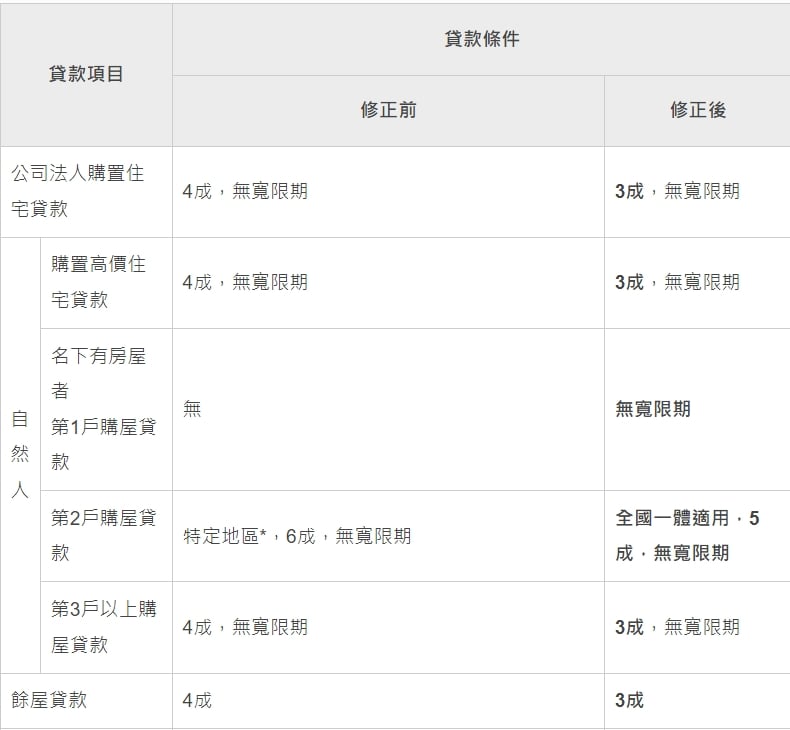Today (19th), the U.S. Federal Reserve announced the start of interest rate cuts in the early morning, lowering the benchmark interest rate by 0.5% (2 yards) to 4.75% to 5%. On the same day, the Central Bank of Taiwan held a third quarter Board of Governors meeting and decided to maintain the policy interest rate unchanged. It was frozen for two consecutive times, but the bank deposit reserve ratio was raised by 1 point (0.25 percentage points).
What is the impact of bank RRR hikes?
Previously, Yang Jinlong, president of the central bank, said that raising the reserve requirement ratio by 1 point would recover more than 120 billion yuan of market funds. With interest rates frozen, the central bank's move not only suppressed demand in the housing market in disguise, but also put pressure on banks to prepare more cash on hand to meet their previous goal of providing loans to first-time homebuyers.
- The discount rate remains at 2% per year
- The guaranteed loan financing interest rate remains at 2.375%
- The short-term financing interest rate remains at 4.25%
The central bank launches the seventh wave of prevention and control measures
At the same time, the central bank also launched the seventh wave of housing market controls today. President Yang Jinlong said that Taiwan’s housing market has been overheated. In order to further curb speculation and housing hoarding in the housing market, Taiwan’s central bank has revised the “ Real Estate Mortgage Business Regulations ” starting from September 20, 2024. Effective, the main amendments are as follows:
- There is no grace period for the first home purchase loan : If a natural person already has a house in his name, his first home purchase loan shall not have a grace period.
- The loan percentage for the second household to purchase a house is reduced to 50% : The maximum percentage of the loan for the second household of a natural person to purchase a house is reduced from 60% to 50%, and is extended to the whole country.
- The loan ratios for legal persons and high-priced residences have been reduced : the loan ratios for house purchase loans for corporate entities and for natural persons to purchase high-priced residences have dropped from 40% to 30%.
- The loan percentage for surplus housing is lowered to 30% : the maximum loan percentage for surplus housing is reduced from 40% to 30%.

Real estate developers complain
As for the central bank's new system, experts say it is the most severe housing crackdown in history. Lai Zhengyi, chairman of Xianglin Group, pointed out :
There is no grace period for loans to buy your first home. Does the bank have to temporarily change the loan contract with the borrower?
As for the maximum loan percentage for the second home purchase of a natural person, it has gone from 70% in the sixth capital to only 60% in the seventh capital. Now it will be reduced to 50%, and it applies to all Taiwan. He has heard from people who are changing their houses. What should people who are wailing and have signed a contract to buy a new house and prepare to change their house do? If they can't come up with more cash to provide for themselves, should they be asked to terminate the contract with the builder? Who has to pay liquidated damages?
According to the latest real-price registration data, in the nine months since the launch of Xinqing'an, the average unit price of residential properties in the seven major metropolitan areas has increased by more than 5%. Among them, the unit price in Hsinchu County and City increased by 11.2%, and the total price increased by 10.4%. It is the hottest area in the housing market after the implementation of the new Qing'an, but it also makes it even more unaffordable to buy a house.
Whether the central bank's most stringent preventive measures, which will be implemented on September 20, can successfully suppress overheating housing prices deserves our continued attention.








